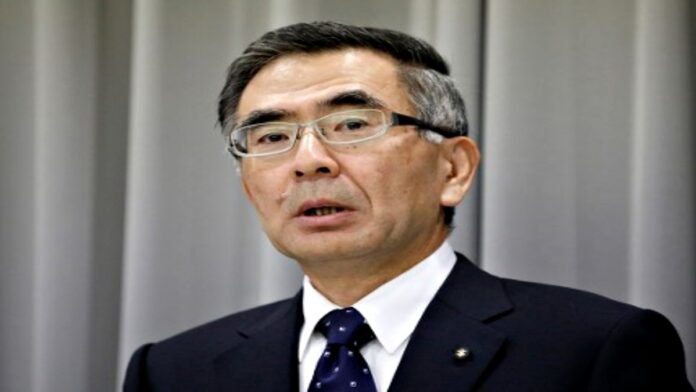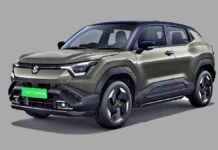
Key Points
- Suzuki Motor Chairman Toshihiro Suzuki announces India as global production hub for the upcoming electric SUV e-Vitara.
- First India-made Suzuki EV to be exported to over 100 countries, including Japan and European Union markets.
- ₹70,000 crore investment planned in EV plants, battery facilities, and R&D over next 5–6 years.
- Highlights India’s policy support, investment climate, and manufacturing quality.
- Marks a major leap in Suzuki’s carbon neutrality & clean mobility roadmap.
New Delhi: Suzuki Motor Corporation Chairman Toshihiro Suzuki declared that India will serve as the global manufacturing hub for the company’s first electric SUV – the Suzuki e-Vitara.
The announcement was made during an industry forum in Tokyo, where Suzuki emphasized that the manufacturing ecosystem in India has gained enough global trust to meet stringent global safety, quality, and design standards.
Quoting Suzuki:
“India has progressed so much in terms of policies, infrastructure, and investments that it now matches global automotive standards. The e-Vitara produced in India will be exported to Europe, Japan, and more than 100 countries worldwide.”
Breakthrough: Made-in-India Suzuki EV to Enter Japanese Market
This announcement is seen as historic, especially since Japan rarely imports automobiles built abroad. The decision to import India-built EVs into Japan reflects deep confidence in Indian capabilities and signifies a turning point for India’s automotive industry on the international stage.
The fact that the e-Vitara has already secured approvals for Europe’s strict safety and performance norms further indicates India’s rise as a trusted global EV manufacturing hub.
₹70,000 Crore Investment in India’s EV Future
Suzuki has committed an investment of ₹70,000 crore (approx. $8.5 billion) over the next 5–6 years in India, covering:
- EV manufacturing plants in Gujarat and Haryana
- Battery R&D centers and giga-factories in partnership with Japanese and Indian firms
- Advanced design and testing facilities focused on global compliance
This move strengthens India’s positioning as not just a domestic auto market, but also a strategic nerve center for Suzuki’s clean mobility transformation.
Suzuki’s Roadmap Towards Carbon Neutrality
The company clarified that India will not only remain its largest market for conventional vehicles, but will also become its innovation hub for sustainable mobility.
Suzuki’s future roadmap in India focuses on:
- Electric Vehicles (EVs) : Start of e-Vitara exports from 2026
- Biofuels/Ethanol Flex-Fuel Vehicles : to cater to agricultural surplus use
- Hybrid Vehicle Systems : as a transitional technology
- Battery Technology Research : in alignment with global sustainability goals
Toshihiro Suzuki added:
“Over the coming five to six years, India will remain at the center of Suzuki’s global carbon-reduction strategy.”
India’s Growing Importance for Suzuki
India, already Suzuki’s largest market by sales, is now also positioned as its global electric vehicle base. The e-Vitara export program clearly establishes that India is no longer just a consumer market but a global contributor to Suzuki’s low-emission and clean mobility future.
Industry analysts believe that this announcement could:
- Support employment growth in EV manufacturing clusters (Gujarat, Tamil Nadu, Haryana).
- Strengthen India’s push to emerge as a central player in global EV supply chains.
- Enhance India’s position in upcoming FTA negotiations with Japan and EU, using EVs as a trade driver.
Latest Updates (as of August 27, 2025)
- Pilot production line for e-Vitara is being set up in Suzuki’s Gujarat facility.
- Mass production expected by early 2026, with first exports to the EU in mid-2026.
- Suzuki has begun discussions with the Indian government for incentives under the EV Production Linked Incentive (PLI) scheme.
- The company is exploring partnerships with Indian startups for EV software and AI-based battery management solutions.












































